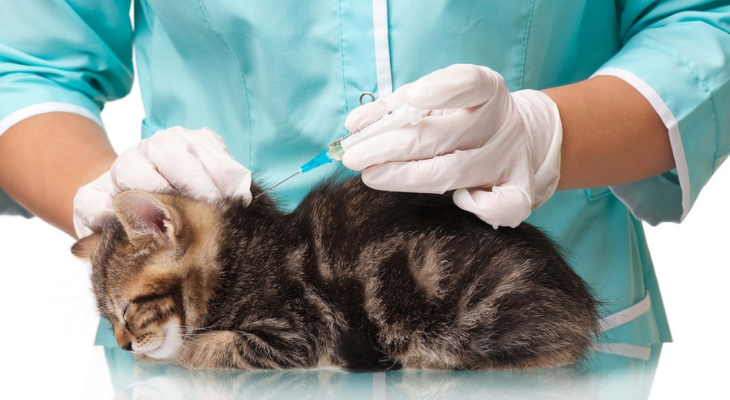
Core Vaccines for Your Cat and Dog
Vaccinations protect your cat or dog from illnesses that could cause serious health complications or even death. Vaccines boost your pet's immune system, preventing illness or making symptoms much less severe.
Vaccines Your Dog Needs
These core vaccinations are recommended for all dogs:
- Rabies. Your dog can catch rabies from the bite or scratch of an infected dog, cat, bat, skunk, fox, raccoon, or another wild animal. Unfortunately, rabies is usually fatal. There are about 5,000 rabies cases in the U.S. every year, according to the Centers for Disease Control and Prevention. Ninety percent of the cases involve wildlife. Vaccinating your dog offers a simple way to protect your furry friend from this deadly disease.
- Combination Vaccine. This shot offers protection from four diseases that could affect your pet: distemper, adenovirus-2, parainfluenza, and parvovirus. These diseases are highly contagious, can make your pet very sick, and have a high fatality rate.
Your veterinarian may also suggest one or more non-core vaccinations. Your dog may need a non-core vaccination if a particular disease is more common in your area, or if your pet travels with you to other areas of the country or frequently spends time with other dogs. Non-core vaccinations include:
- Bordetella (Kennel Cough). This vaccine is recommended for pets that spend time around other dogs at dog parks, boarding facilities, training classes, or dog shows.
- Lyme Disease. A Lyme disease vaccine may be needed if you live in a part of the country where the disease is widespread.
- Leptospirosis. Leptospirosis is spread through the urine of wild animals. Depending on the amount of time your dog spends outdoors, your veterinarian may recommend the vaccine.
- Crotalus Atrox. The Crotalus atrox vaccine decreases your dog's risk of death if it's ever bitten by several types of rattlesnake found in California.
- Influenza. The influenza vaccine can make canine flu symptoms less severe if your dog catches this illness. It's recommended for dogs that regularly spend time with other dogs.
Vaccines Your Cat Needs
Core vaccines for cats include:
- Rabies. A rabies vaccine is a must even if you have an indoor cat. You never know when you're cat could slip out an open door and come in contact with a wild animal infected with the rabies virus. Even if your cat never goes outdoors, a rabid bat could find its way into your home and infect your favorite feline. A rabies vaccine offers peace of mind and is required by many municipalities.
- Combination Vaccine. The FVRCP combination vaccine for cats provides protection against feline calicivirus, feline panleukopenia (distemper), and feline viral rhinotracheitis herpesvirus-1). All of these diseases are easily spread and cause symptoms ranging from nasal congestion to diarrhea to death.
- Feline Leukemia (FeLV). Your cat will need a feline leukemia vaccine if it's 1 year old or younger, as younger animals are more likely to catch this disease. The FeLV vaccine is a non-core vaccine for older cats who go outdoors.
These non-core vaccines may be recommended for some cats:
- Bordetella. Although most cats won't need the bordetella (kennel cough) vaccine, it can be a good idea if you have multiple cats in your home or your cat stays in a boarding facility occasionally.
- Chlamydia. The chlamydia vaccine can be added to the combination vaccine or given separately. The illness, which causes conjunctivitis (pink eye) and upper respiratory infections, most often affect multi-cat households and cats that go outdoors.
Has your cat or dog been vaccinated against diseases common in our area? Contact us if your pet needs a vaccine, or you're not sure which vaccines your dog or cat has received.
Sources:
Centers for Disease Control and Prevention: Rabies in the U.S.
American Animal Hospital Association: Core Vaccines for Pet Cats
ASPCA: Vaccinations for Your Pet
Consumer Reports: Why It’s So Important to Vaccinate Your Dog, 9/17/18
